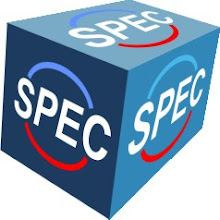Here's presenting you the guide to the laboratory methods of teaching. Read the content and I'm sure you will find the tips useful in your teaching profession.

Practical philosophy 10 week practical philosophy course starting w/c 2 May www.philosophycourse.com
Laboratory Fridge/Freezer Laboratory Fridges and Freezers including Ilshin Ultra-low Feeezers www.labec.com.au
Improve Teaching Skills Earn a Degree or Masters in Education Leadership at Macquarie www.international.mq.edu.au
Laboratory Teaching Method ~ The Correct Technique
Taking up practical classes is hectic. A sincere guide walks around to supervise his/her students. Therefore, most of the time is spent standing and this is absolutely strenuous. Still one takes care of the students. So what are the considerations to becoming a good lab teacher? Read ahead and know how can you improve laboratory methods of teaching.
Point 1 ~ Self Preparation
You should know everything about what you are going to teach your students. You must know the details of the experiment. Revise the techniques of the lab so that you make your students learn the correct way right from the beginning. You should be well prepared to answer their questions and clarify their doubts. A good start is always needed to begin an experiment. Click on the link to know the correct teaching methods in education.
Point 2 ~ Right Explanation
The worth of teacher is always weighed by students. Knowing everything is not enough. So what are the effective teaching strategies in a lab? You should be capable of sharing your knowledge with your students. You must be able to make them understand each and every scientific cause behind the observations. Your students will be curious to know and so you have to be efficient enough to reply them confidently.
Point 3 ~ Starting Experiments
So how do you start the experiment? There are different ways to start with. The best is to explain the process orally once, explaining the methods as written in the protocol. You should ask your students to follow the protocol before handing the instruments. This way they will learn the correct procedures for performing the experiment. You can also schematically explain the process.
Point 4 ~ Handling Instruments
This is one of the most important aspect to be considered while performing an experiment. Mishandling of instruments might lead to accidents and breakage of expensive lab supplies. Show them how to hold the test tubes, light burners or handle any instrument. Your students should follow you and should not try anything spontaneously if they are ignorant about it.
Point 4 ~ Explaining Observations
Once the experiment is over, you are supposed to explain your students the reasons behind the observations. Explain them the inference in details, so that no doubt remains in their mind. Relate the observation with the text they have learned in their theory classes. Getting accurate results is quintessential for the success of an experiment.
Point 5 ~ Writing Reports
There are different ways to write lab reports. You should teach your student the sequence for writing a lab report format. The typical structure of a thesis or lab reports begins with the aim of the experiment, the requisition and then the detailed explanation of the process, methods techniques and the precautions required. At last, the observation along with a good conclusion is cited. Diagrams, flow charts, formulas, schematic paths, etc. are important part of the report.
Point 6 ~ Lab Safety
You should know the safety guidelines and lab safety symbols before teaching your students. You should explain them the precautions needed for the experiment. Your students should know how to operate safety devices like oxygen cylinders, masks, gloves, head bands, etc. This way mishaps are avoided. You must always keep first aid inside the laboratory to treat minor burns and blisters. Read about the lab safety rules for kids before starting an experiment.
I hope the laboratory methods of teaching written in the aforementioned content has proven useful to you. Last but not the least, if you have taken up teaching as your profession, then you must work on this line, 'a teacher should be a friend, philosopher and a guide'.
http://www.buzzle.com/articles/laboratory-methods-of-teaching.html
 Posted in:
Posted in:  Yogyakarta Time
Yogyakarta Time









